Ecosystems
-
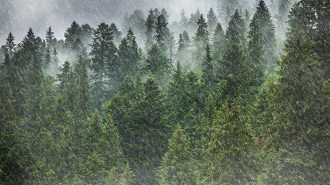 Environment
EnvironmentSkyborne specks of life may influence rainfall patterns
A study of weather on a mountain in Greece reveal that bioparticles in the sky may drive fluctuations in rainfall patterns more broadly.
By Nikk Ogasa -
 Animals
AnimalsAncient poems document the decline of the Yangtze finless porpoise
The porpoise is critically endangered. Ancient Chinese poems reveal the animal’s range has dropped about 65 percent over the past 1,400 years.
-
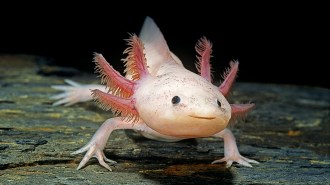 Animals
AnimalsThe axolotl is endangered in the wild. A discovery offers hope
Introducing captive-bred axolotls to restored and artificial wetlands may be a promising option for the popular pet amphibian.
By Anna Gibbs -
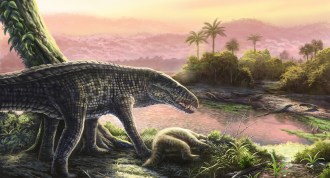 Paleontology
PaleontologyThese crocodile-like beasts reached the Caribbean, outlasting mainland kin
Knife-toothed reptiles called sebecids went extinct on the mainland 10 million years ago. New fossil evidence puts them on an island 4 million years ago.
By Jake Buehler -
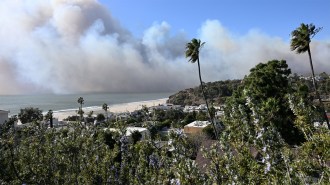 Oceans
OceansHow will the LA fires affect the ocean? These researchers are racing to find out
Scientists aboard a research vessel near Los Angeles collected ash, air and water samples as fire blazed on the hills before them in January.
-
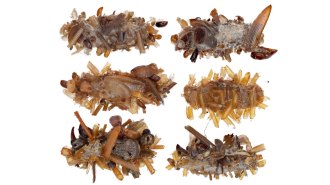 Animals
AnimalsThis caterpillar wears the body parts of insect prey
Dubbed the “bone collector,” this caterpillar found on a Hawaiian island disguises itself while stalking spider webs for trapped insects to eat.
-
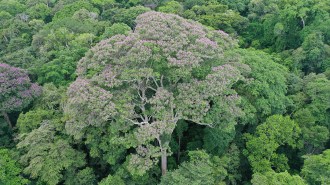 Plants
PlantsSome tropical trees act as lightning rods to fend off rivals
Though being struck by lightning is usually bad, the tropical tree Dipteryx oleifera benefits. A strike kills other nearby trees and parasitic vines.
-
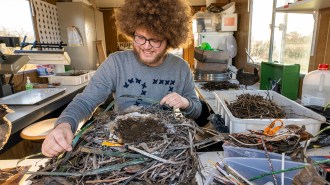 Animals
AnimalsPlastic ‘fossils’ help scientists reconstruct the history of bird nests
Plastic waste has let common coots reuse nests year after year. Scientists have now used the trash layers to date how old nests are.
-
 Animals
AnimalsHammerhead sharks’ diets may affect if they roam or stay home
Understanding hammerhead sharks’ food preferences could aid efforts to protect the critically endangered fish.
-
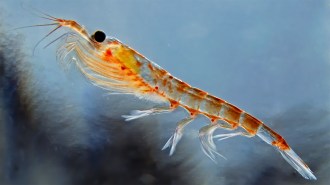 Animals
AnimalsStinky penguin poop strikes fear into the hearts of Antarctic krill
A chemical in Adélie penguin guano may have cued krill to take evasive maneuvers in lab tests.
-
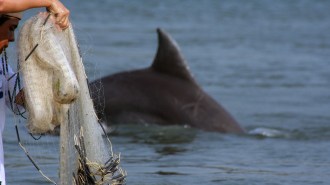 Animals
AnimalsDolphins and humans team up to catch fish in Brazil
In Brazil, where humans and dolphins fish in tandem, cooperation both within and between species is essential for the longstanding tradition.
-
 Climate
ClimateWarming is chasing cloud forests steadily uphill
Cloud forests are biodiversity hot spots and crucial water sources. But climate change and deforestation are shrinking their range, new data show.
By Douglas Fox